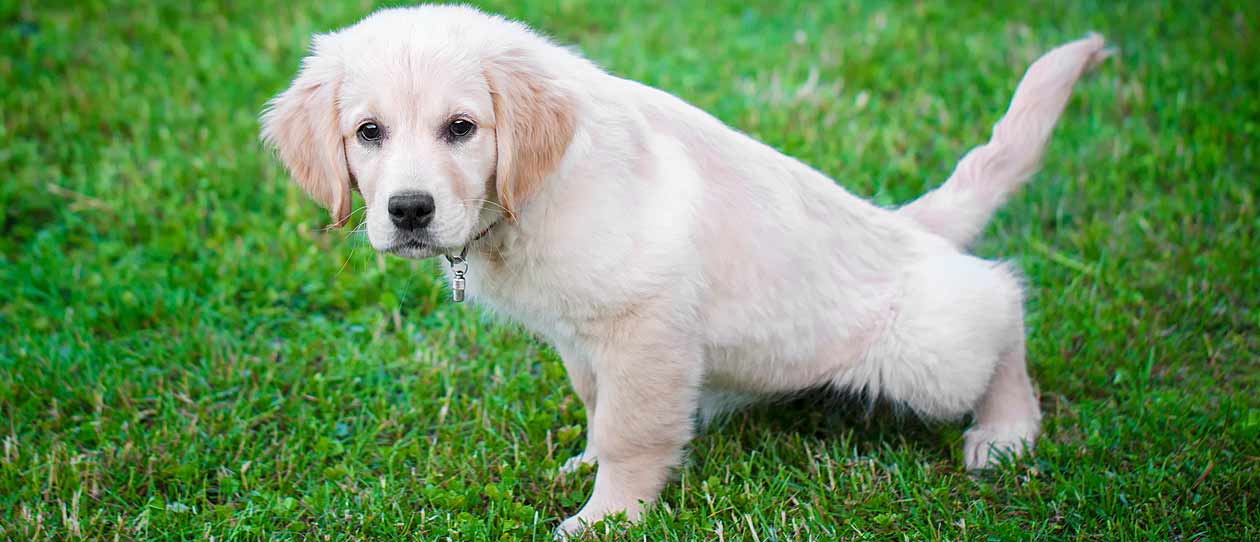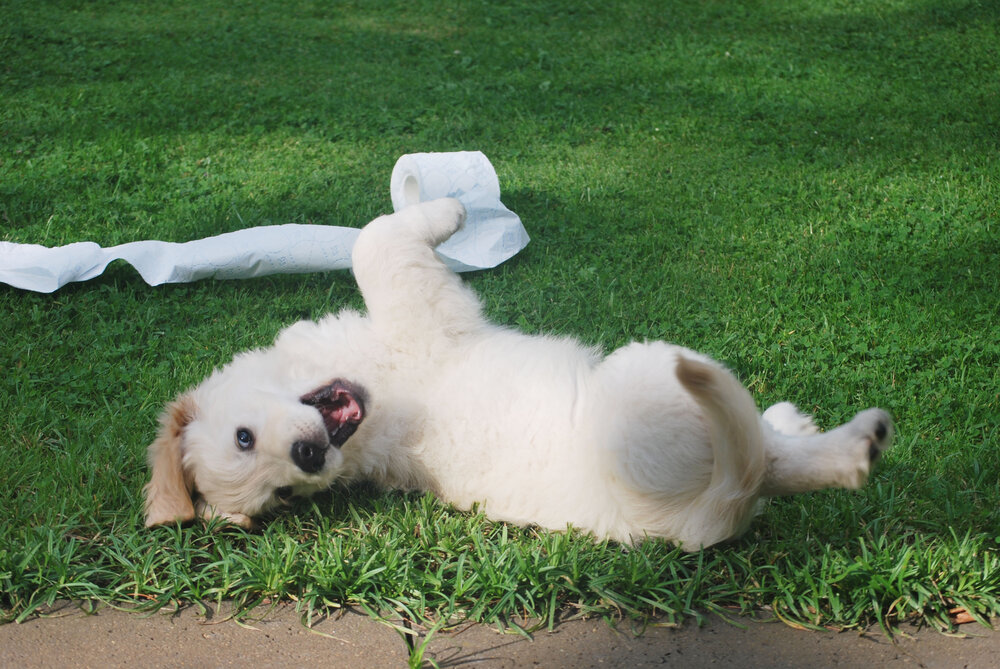
One of the frequently asked questions about puppies, after they have been brought home to their new families, is how to approach their toilet training.
Today’s answer to that important question comes from a Trinidadian veterinary colleague, Dr Kristel-Marie Ramnath, who has kindly given us the written permission to reproduce two of her copyrighted contributions on this subject, which have previously appeared in the Trinidad Sunday Guardian newspaper, under the caption: Toilet-training puppies – Part 1.
A common problem experienced by owners of new puppies is that of training the puppy where is acceptable for them to toilet or potty.
Sadly, often the most frequent advice given is that of taking the puppy to the mess and rubbing his nose in it. If anyone tells you to do this to your dog, make a mental note that that person is someone who abuses animals.
Like babies, puppies are incapable of holding in urine and stool – when they have to go, they go. Bowel and bladder control in dogs does not start to develop until around 12 weeks of age, but in some breeds such as Yorkshire Terriers, this ability can take 6 months to 1 year to fully develop. This means that the puppy is not messing everywhere to spite you or because he is naughty, but because he genuinely cannot help himself.
Toilet training includes the word “training” for a reason. Work is involved – don’t be lazy, you have to teach the puppy, not expect the puppy to read your mind. There are two key times to focus your training sessions – after the puppy has woken up and after the puppy has eaten.
Believe it or not, dogs are sanitary when it comes to not messing their dens or living space. You will notice that your puppy rarely messes the area where he is being fed or where he sleeps, but instead, he chooses to toilet as far away from these areas as possible.
You can use this natural instinct to your advantage when teaching your dog where to toilet by simply feeding him in the areas you do not want him to go.

If you are keeping your puppy in a room, leave food/water bowls, bed and toys in one half of the room and place newspaper or urine pads in the other half. You should find the next morning that he has messed on the paper or pads. You will also notice after a few nights that the poop is confined to a particular region of the newspaper/pad areas. At this point, you can cut back the sheets laid down to just that region.
If he continues to target the newspaper, you can progress to gradually moving the location of the newspaper/pad towards the door and finally placing newspaper/pad outside, in the area of the garden you want him to toilet.
He will transfer the newspapers/pad association to outdoors, and you can then phase out the newspapers or urine pads so he is going in the grass.
Alternatively, you can confine the puppy to a crate or kennel at night. Remember that you should never kennel a dog for more than a couple of hours at a time for the psychological welfare of the animal. Right before you go to bed, take the puppy outdoors to give him the chance to run around and empty his bowel and bladder. When you initially kennel him overnight, you will likely find a messy kennel in the morning. However, the puppy will gradually start to hold in overnight, as his bowel and bladder control develop. In addition, he will not want to mess his sleeping area, because then he will have to spend the rest of the night with it. After a few nights, you should find no poop in the mornings.
The first thing to do every morning is to take the puppy out to the garden on a harness and leash and wait with him until he goes. Reward him and use a word such as “potty” to form an association. If you are consistent with the verbal command as well as repeatedly taking him to the same spot, your dog can learn to urinate or defaecate in that specific area on your command.
Do not let him out in the yard without accompanying him – to show him where you want him to defaecate and urinate. Express your approval and reward him when he follows your advice. (Dr Kristel-Marie Ramnath for the Trinidad Guardian)
Next week, we shall continue by looking at the importance of establishing a regular routine after mealtimes.











